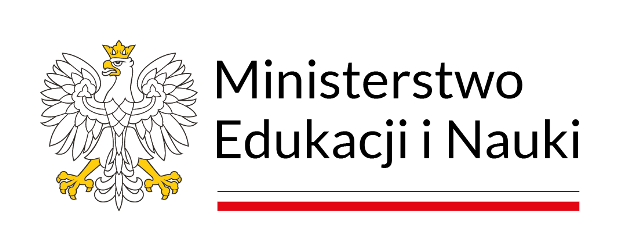Published since 2002, "Verbum Vitae" is a biblical-theological quarterly issued by the Institute of Biblical Studies of the Faculty of Theology, The John Paul II Catholic University of Lublin, Poland. The first and third fascicles of each issue of the journal include scholarly articles dedicated to a specific theological theme. Each topic can be broaden out into its multiple connections and implications, mostly dogmatic, moral, pastoral, liturgical, or sociological. The second and fourth fascicles of the issue always consist of various theological articles, published in English, which do not deal with the main topic (specific theological theme) of the first and third fascicles. Because of the journal's interdisciplinary character, it seeks to include among the contributors not only biblical scholars but also theologians of various specializations. "Verbum Vitae" is classified as Q2 in Religious Studies according to Scimago Journal & Country Rank.
 ISSN: 1644-8561 (Print)
ISSN: 1644-8561 (Print)
 ISSN: 2451-280X (Online)
ISSN: 2451-280X (Online)
 DOI: 10.31743/vv
DOI: 10.31743/vv
 Licence:
Licence:




Topics of the forthcoming fascicles / Call for papers 2025-2026
2025-01-09
Dear Authors and Readers,
The forthcoming issues of our quarterly will address the following topics:
44/1 (2026) Vaticanum II: History, Theology, and Reception (texts in English only; submission deadline: October 30, 2025; publication: March 30, 2026)
44/2 (2026) Varia (texts in English only; continuous submission, publication: June 2026)
44/3 (2026) Varia (texts in English only; continuous submission, publication: September 2026)
44/4 (2026) John Henry Newman: His Life and Theological Legacy (texts in English only; submission deadline: July 31, 2026; publication: December 2026)
Please feel free to send your submissions and suggestions to the editorial board at verbum.vitae@kul.pl
Kind regards,
The Verbum Vitae Editorial Team
"Verbum Vitae" in the Web of Science database!
2024-11-12
Dear Authors, Reviewers, Readers and Collaborators of Verbum Vitae,
We are happy to announce that the journal Verbum Vitae has been selected for inclusion in the Web of Science database. Articles published after 2022, beginning with issue no. 40/1, will be included in the Emerging Sources Citation Index. We congratulate all our authors and reviewers, and thank everyone involved in the existence and operation of our journal for their cooperation and support!
Verbum Vitae Editorial Team
Current scoring of the "Verbum Vitae"
2024-01-08
Dear Authors, Readers and Reviewers,
we would like to inform that according to the announcement of the Polish Ministry of Science and Higher Education of 5 January 2024 Verbum Vitae received 100 points.
Verbum Vitae Editorial Board
Verbum Vitae is a member of the Committee on Publication Ethics (COPE)
2022-09-28
Dear Authors, Reviewers, Contributors and Readers of Verbum Vitae,
we are pleased to announce that Verbum Vitae has been admitted to the group of members of the Committee on Publication Ethics (COPE), an association committed to promoting high standards of publication ethics and publishing culture.
Thank you for your interest so far and kind regards
Verbum Vitae Editorial Team
Verbum Vitae in electronic (online) version
2022-03-03
Dear Authors, Reviewers, Contributors and Readers of Verbum Vitae,
we kindly inform you that from 2022 Verbum Vitae will be published only in electronic (online) version.
The next issues of the journal will be available on our website:
https://czasopisma.kul.pl/index.php/vv/issue/archive
Thank you for your kind interest.
Best regards
Verbum Vitae Editorial Team
- Arianta
- Atla Religion Database® (ATLA RDB®)
- AtlaSerials® (Atlas®)
- AtlaSerials PLUS® (Atlas PLUS®)
- Baza Artykułów Biblistyki Polskiej (BABP)
- Baza czasopism humanistycznych BazHum
- Bibliographic Information Base in Patristics (BIBP)
- Biblioteka Cyfrowa KUL
- Biblioteka Nauki
- Central and Eastern European Online Library (CEEOL)
- The Central European Journal of Social Sciences and Humanities (CEJSH)
- CiteFactor
- Dimensions
- The Directory of Open Access Journals (DOAJ)
- EBSCO Discovery Service
- EBSCO Essentials
- European Reference Index for the Humanities (ERIH PLUS)
- Index Copernicus Journals Master List
- Index Theologicus (IxTheo)
- INFONA
- Information Matrix for the Analysis of Journals (MIAR)
- LITaRS (Louvain Index of Theology and Religious Studies for Journals and Series)
- Most Wiedzy
- New Testament Abstracts (NTA)
- Old Testament Abstracts (OTA)
- POL-Index
- Polska Bibliografia Naukowa (PBN)
- Repozytorium Instytucjonalne KUL (ReKUL)
- Scilit
- Scimago Journal and Country Rank (SJR)
- SCOPUS
- Sherpa Romeo
- Theo-logos
- Web of Science

The journal co-financed by the Ministry of Education and Science within the programme "Rozwój czasopism naukowych" (Development of scientific journals"). Contract no. RCN/SN/0277/2021/1 of 9th December 2022. Project duration: 1 December 2022 - 30 November 2024. The amount of co-financing is 111 673,70 PLN.
The aim of the programme is to support the Editorial Board of the journal "Verbum Vitae" in the implementation of its development strategy, which includes activities raising the level of publishing and editorial practices, increasing the journal's impact on the development of science and maintaining the journal in the international academic circulation.









